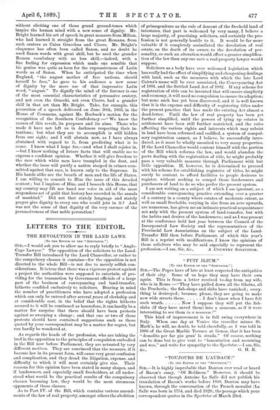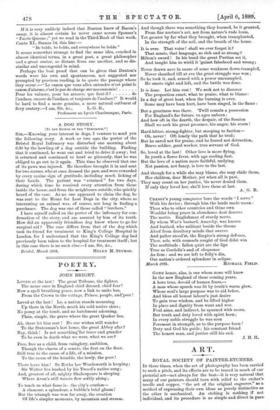" TOUJOURS DE L'Al7DACE !"
I TO THE EDITOR OF THE " SPECTATOR."1 SIR,—It is highly improbable that Danton ever read or heard of Bacon's essay, " Of Boldness." However, it should be observed that though Antoine La Salle did not publish his translation of Bacon's works before 1800, Danton may have known, through the conversation of the French moralist (La Salle was born in 1754, and died 1829), the passage which your correspondent quotes in the Spectator of March 23rd. If it is very unlikely indeed that Danton knew of Bacon's essay, it is almost certain he never came across Spenser's " Faerie Queene ;" yet we read in the Third Book of that work, Canto XI., Stanza 54, this line:—
"Be bolde, be bolde, and everywhere be beide."
It seems somewhat strange to find the same idea, couched in almost identical terms, in a great poet, a great philosopher and a great orator, so distant from one another, and so dis- similar and uncongenial in mind.
Perhaps the best proof that can be given that Danton's words were his own and spontaneous, not suggested nor prompted by previous reading, is to quote the passage where they occur :—" Le canon que vous allez entendre n'est point le canon d'alarme, c'est le pas de charge stir nos ennemii31
Pour lea vaincre, pour les atterer, que faut-i1P de l'audace, encore de l'audace, et toujours de l'audace !" It would be hard to find a more genuine, a more natural outburst of fiery oratory.—I am, Sir, &c., L.-G. R., Professeur au Lycis Charlemagne, Paris.



































 Previous page
Previous page